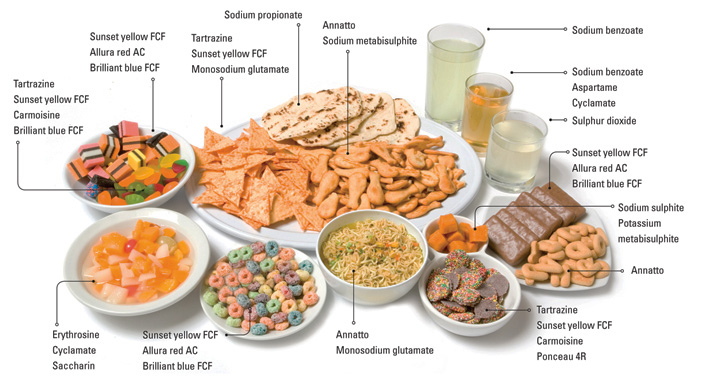What’s flavor got to do with it?
By Christine Stirparo
The other day I was reading an interview with Mark Schatzker, the author of The Dorito Effect. Now full disclosure, I haven’t read his book or any reviews or even a synopsis of it so I can’t speak to  what he talks about in the book. But I did find what he said in the interview to be extremely interesting.
what he talks about in the book. But I did find what he said in the interview to be extremely interesting.

The Dorito Effect by Mark Schatzker
He commented on how we always focus on sugar, salt, and fat when we talk about foods that are hard to resist (have you heard of the bliss point?), but we generally neglect to discuss flavor. He asks “How much soft drinks, potato chips, and tortilla chips would we drink and eat if they weren’t flavored?”
While that seems like it would be a “duh” question, the truth is we really don’t talk about flavor that often. If you were to ask me before reading his interview why people love chips, I would have immediately pointed to the saltiness; if asked about soda, I would’ve commented on the sweetness and carbonation.
But if you think about it, if chips and soda were just salty or sweet with no flavor, would we really be eating that much of them?
My guess is no.

Christine Stirparo, RDN, CD
His interview sparked my curiosity about the history of artificial flavor development, and how it impacts our food choices.
A brief history
The first artificial fruit flavors were developed in 1851 and were showcased as fruit-flavored candies in the chemistry section of the Great Exhibition in London’s Crystal Palace. In 1874 artificial vanilla extract was produced, and in 1908 a Japanese chemist developed MSG.

During World War II we started adding food additives such as MSG to military rations to make them taste better. The American flavor industry was also pushed to develop artificial substitutes for common ingredients due to shortages of many foods and spices.
In the 1950s the first flavored potato chips were invented (cheese and onion & salt and vinegar), and we haven’t looked back since! As the flavor industry has grown, artificial flavors have become more complex, increasing the desirability of the foods in which they’re used.
What that means for us
The problem is that while these foods do provide calories, most of them don’t provide us with the nutrition we need. Strawberry jam may taste like strawberries, but it doesn’t provide any of the vitamin C, fiber, or potassium we’d get from the actual fruit.
When we don’t get the nourishment our bodies require, we’ll feel the need to keep on eating. This can result in us taking in more calories than we need, while remaining undernourished.
Plus we can’t ignore our tendency to keep eating foods that taste good, even when physically we’re too full!
Natural vs artificial
It’s also important to consider the evolution of natural flavor in our foods. I’ve had countless people tell me that produce doesn’t taste as good as it used to, and generally, they’re right. Produce crops haven’t been bred for flavor; instead, they’ve been selected for higher yields, disease resistance, deeper color, and firmness.
While these qualities enable farmers to produce larger quantities of more shelf-stable food, the trade-off is flavor. Which is unfortunate when you think about how much effort goes into making food with artificial flavors taste amazing.
The good news
There are people out there working to bring flavor back to our produce! Harry J Klee at the University of Florida has been working on creating a hybrid tomato that combines more flavor with the traits needed for large-scale production. He’s optimistic that in a couple years, we’ll start seeing significant taste improvement in the produce section.
But what do we do until then?
 Unfortunately, the only thing we can do is accept that our produce doesn’t taste as good as it could – and keep eating it. I know that’s not particularly helpful, but honestly what else can we do? Acceptance is always the first step when we’re struggling with something, and eating healthy is no exception.
Unfortunately, the only thing we can do is accept that our produce doesn’t taste as good as it could – and keep eating it. I know that’s not particularly helpful, but honestly what else can we do? Acceptance is always the first step when we’re struggling with something, and eating healthy is no exception.
However, if you’re someone who finds less flavorful produce to be a significant barrier to following a healthy diet (or just have trouble including enough produce in your diet in general), below are some actions you can take that will make it more enjoyable to eat less-than flavorful fruits and vegetables.
- Cut back on highly flavored snack foods. This includes the obvious ones like chips, crackers, and candy, and not-so-obvious ones such as flavored yogurts, granola bars, and jerky. Check the ingredient list and give any foods that contain natural or artificial flavors the boot! Seriously though, it’s fine to have them sometimes, but eating them on a daily basis will affect your flavor expectations.
- Experiment with spices and cooking methods. You don’t have to eat all your vegetables raw! Try roasting broccoli with lemon and garlic, or roast tomatoes with garlic and basil. Add your creations to salads and sandwiches that might otherwise be a little bland.
- Shop at farmers markets or subscribe to CSA boxes. This is a more expensive option, and the produce may not last as long, but the investment in your health could save you money (and time) down the road.
- Become a horticulturalist and help Harry Klee and his team find ways to restore the flavor in produce. Do it!
As I’ve written before, it is possible to change your taste preferences and start eating healthier foods, it just takes changing some habits and sticking with it until it becomes second-nature.
__________________
Today’s guest Food, Nutrition, and Your Health columnist is Christine Stirparo, RDN, CD. Christine is a registered dietitian, nutrition coach, blogger, and founder of Master Your Nutrition LLC. She works with individuals struggling with bingeing and overeating, and blogs about creating positive, permanent changes in health habits and behaviors. She completed her training through the University of Delaware and now practices in Seattle, Washington. Follow her on Instagram, Pinterest, and Facebook to learn things like how to create more time for healthy meals and how to end late night snacking for good!





















